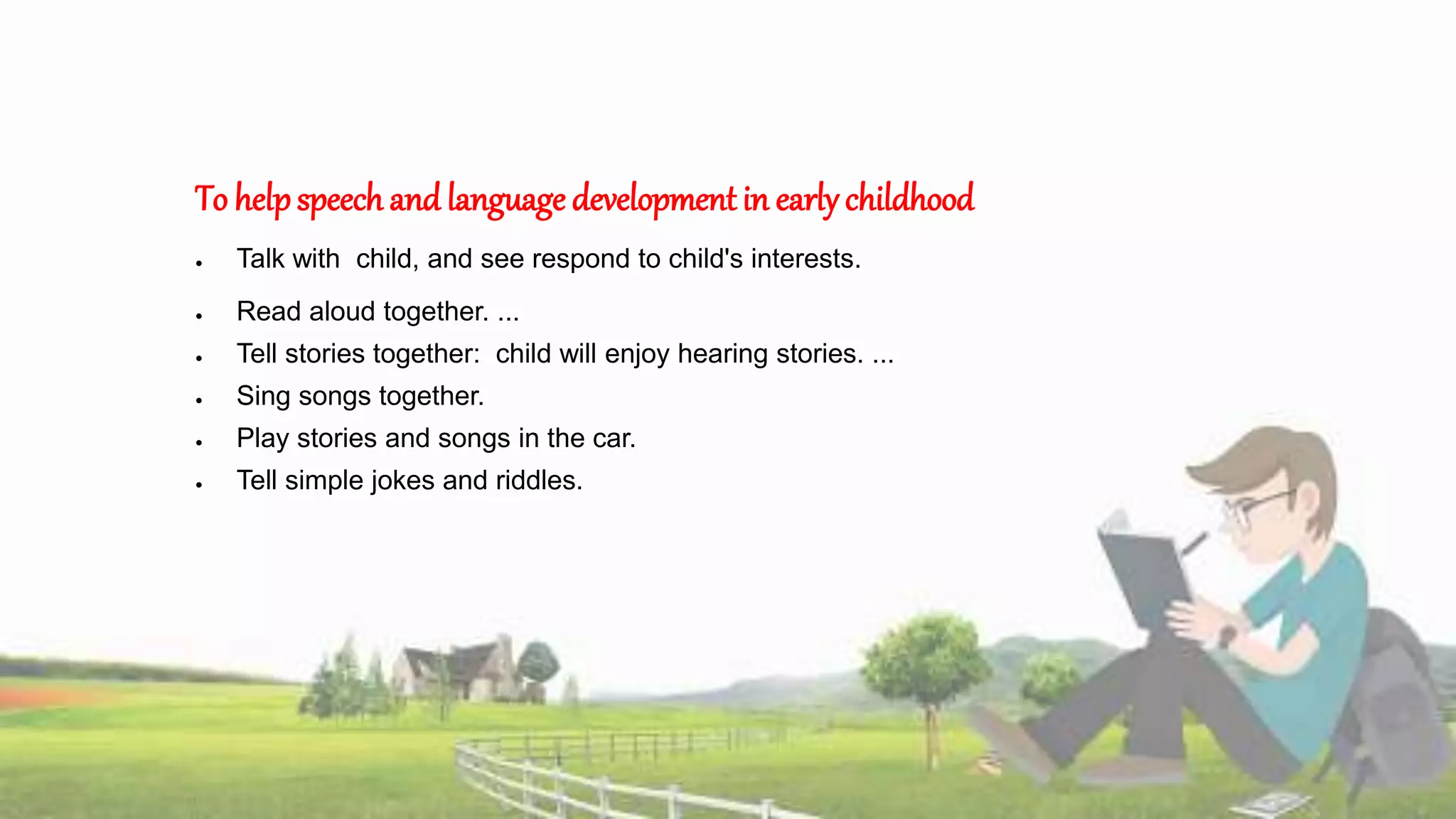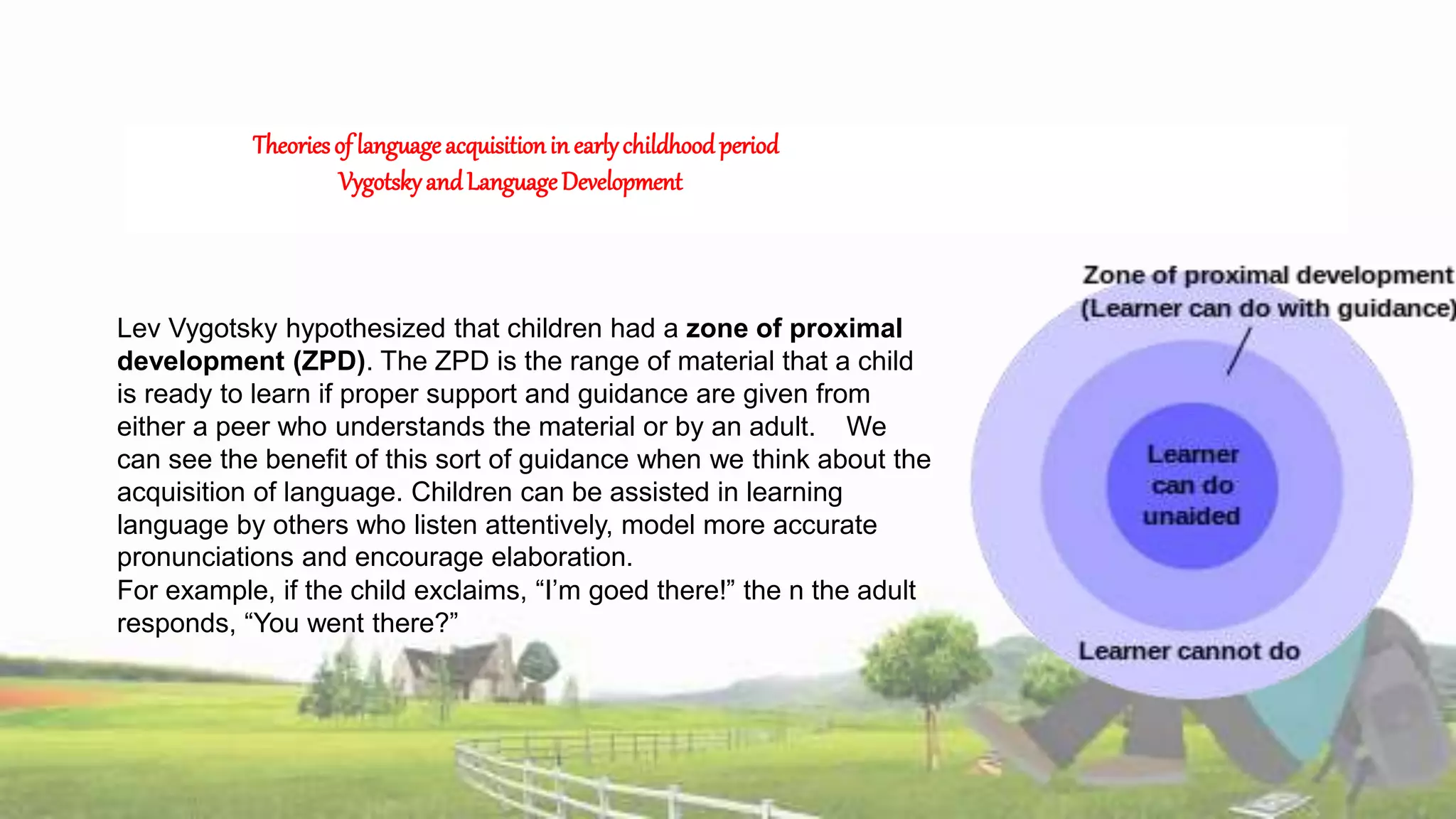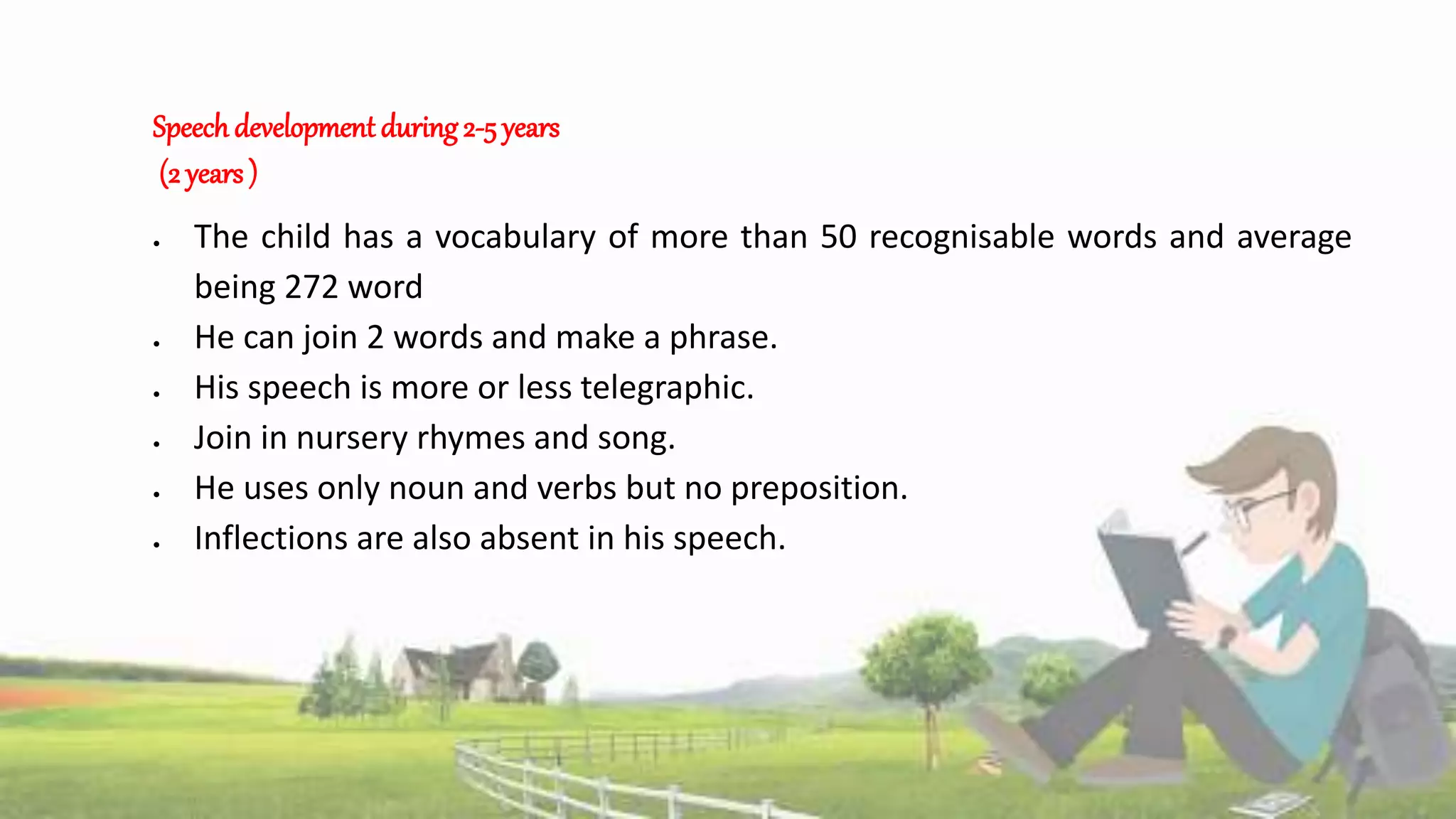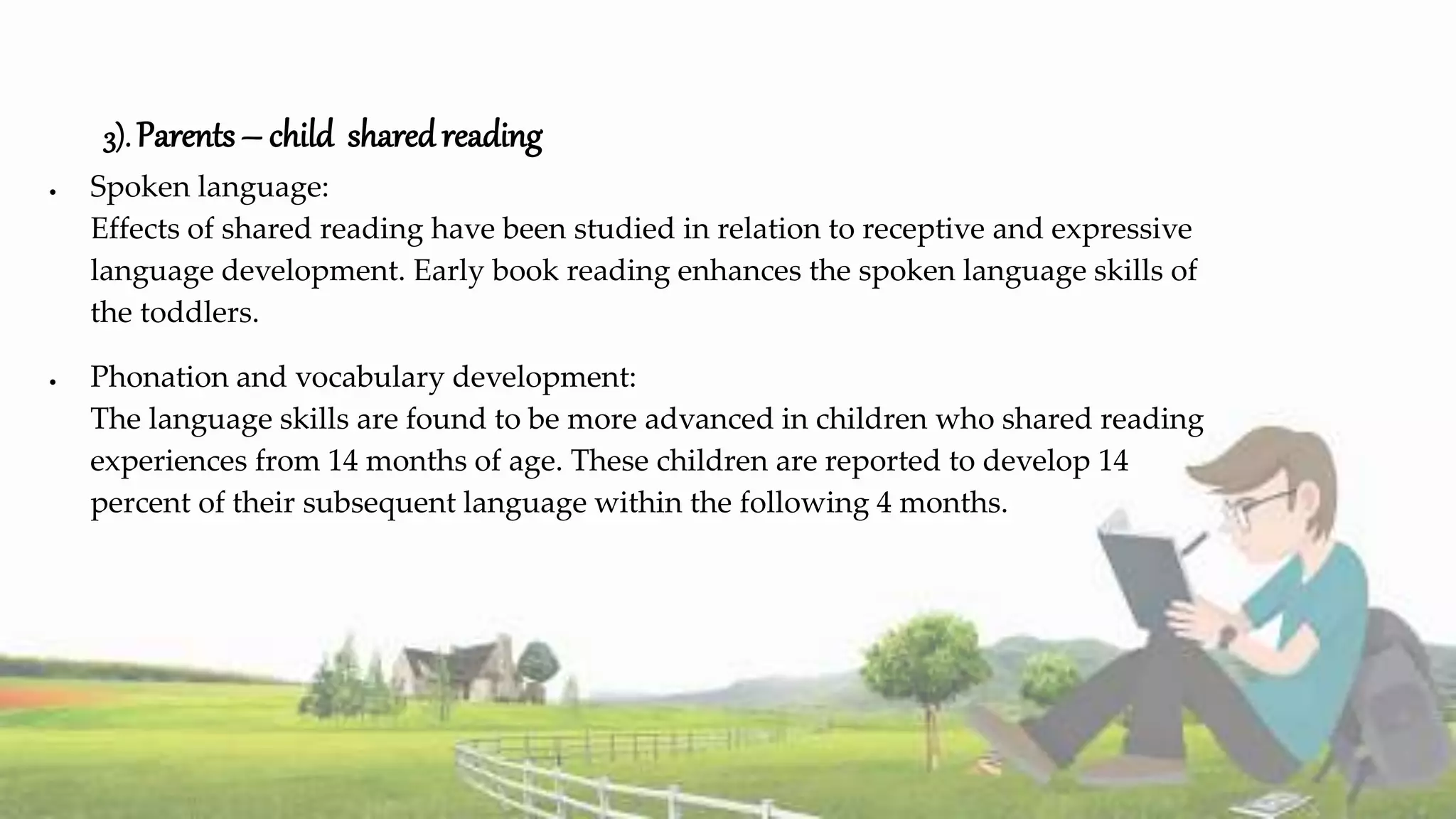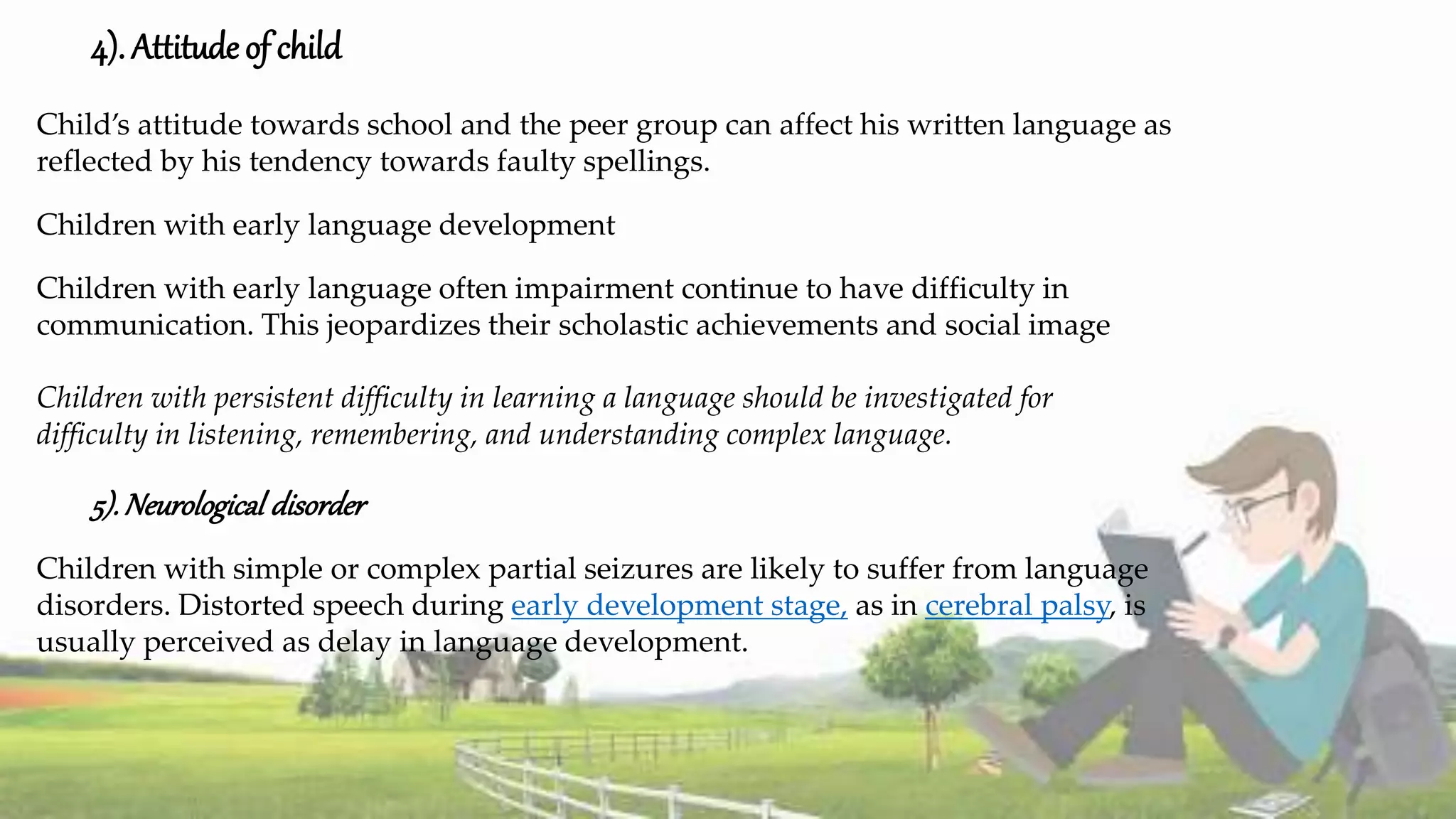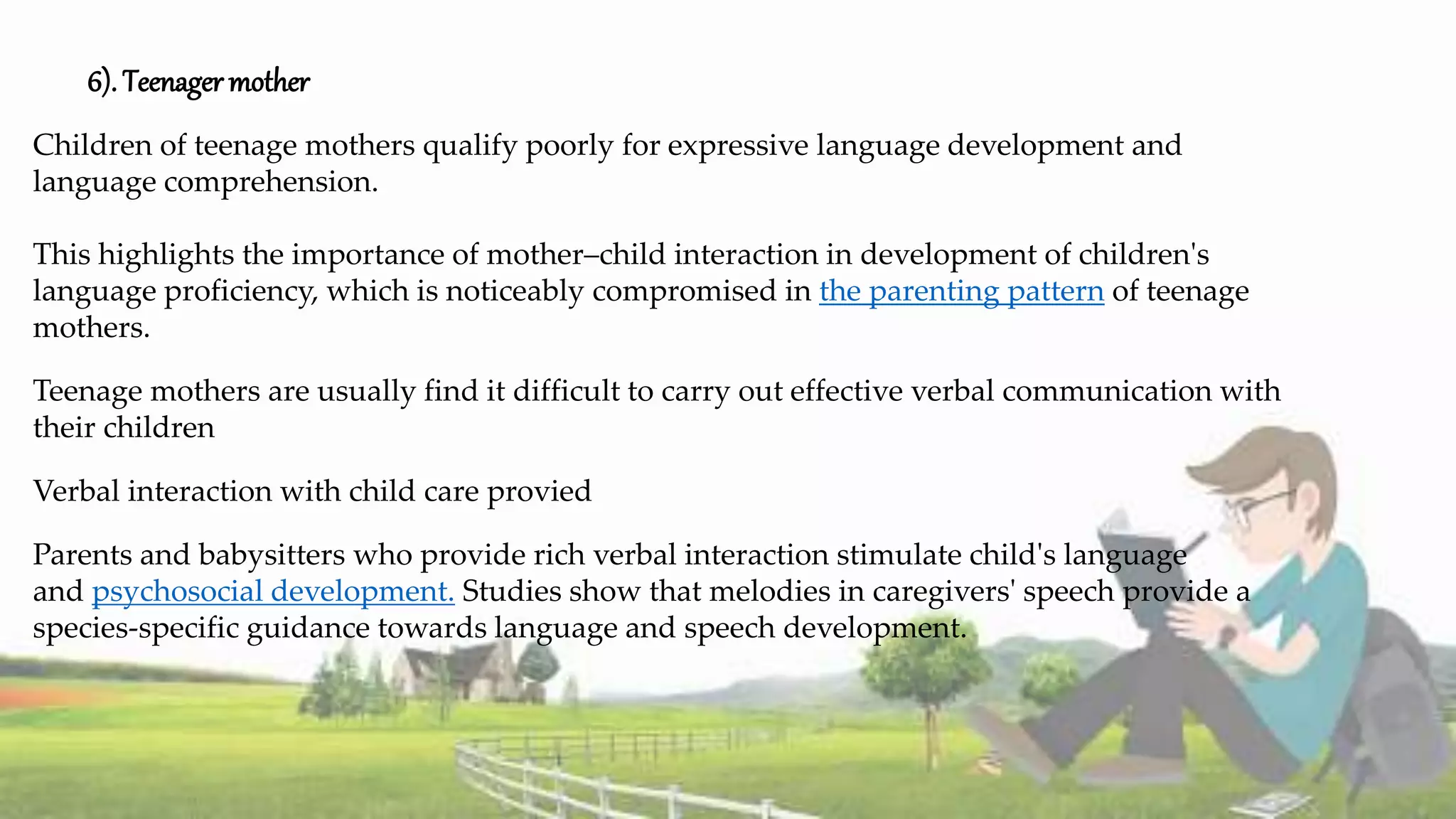Language development is a critical part of child development from ages 2-6 as it allows children to communicate, express themselves, and develop relationships. Children begin developing language from birth through cries and later learn words and sentences. Healthy language development has many benefits and is important for children's cognitive development and ability to socially interact. Parents can support language development through reading, telling stories, singing songs, and engaging in conversations with their children.

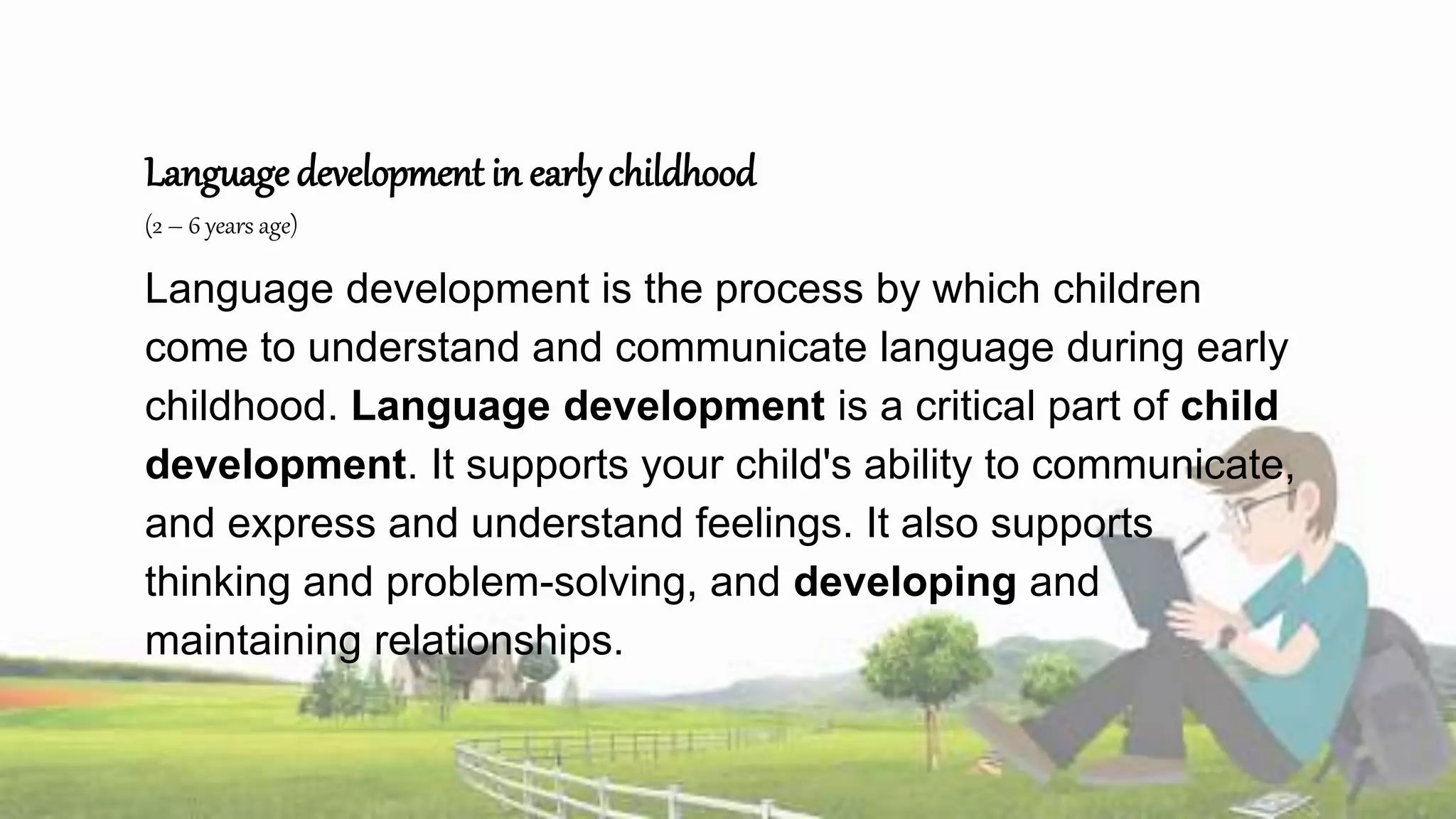

![Why is language development important?
-Language development is important as language consists of a set of social standards that
show comprehension of meanings behind words, putting words together in a sentence
in order to communicate and understanding commands, directions and information given by
others.
Children need to develop language skills to relate with others and to grow into a person
who can socially interact with others through life.
“The child begins to perceive the world not only through his [or her] eyes but also through
his [or her] speech” (Vygotsky, 1978)](https://image.slidesharecdn.com/shivangisinghearlylaguagedevppt-210221085917/75/Language-development-in-early-childhood-period-4-2048.jpg)


